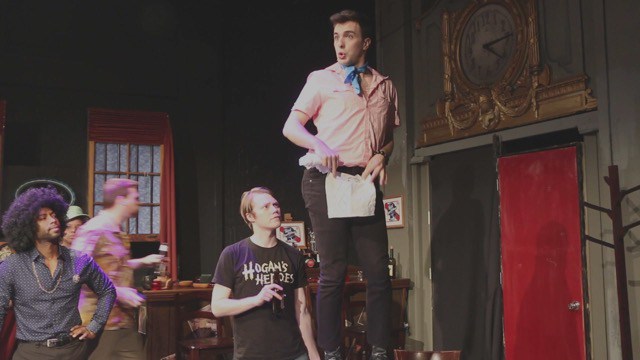
New Orleans tourism thrives on that city's legacy of necrophilic attractions, so why do the circumstances surrounding the destruction of the Upstairs Lounge in its antebellum French Quarter district remain a mystery nearly fifty years later? Is it because 1973 is too recent for the tale to be safely swaddled in romantic myth, or because the 32 men and women — many unidentified to this day — who perished in the arson-initiated fire were in an LGBT establishment? Wayne Self refuses to let these ghosts go unrecognized. Intrigued at the perpetrator of the hate crime (before such a term existed) having never been found—oversight perhaps precipitated by authorities unwilling to acknowledge the scandal of homosexual activity in their jurisdiction — the Louisiana native brings to the stage a speculative account of the events leading up to that fatal night. His play's goal is not the helpless horror of a holocaust play, however, nor does it deliver visceral immediacy arousing us to street-trashing fury. Our author presents his story from the perspective of two survivors—bartender Buddy and drifter Agneau (French for "lamb")—reuniting years after the fact and recollecting, not without reluctance, the tragic ending to the club's benefit for the Metropolitan Community Church, held on the fourth anniversary of the Stonewall uprising. Neither do the Upstairs patrons conform to Hollywood notions of demographic appeal, being instead composites of the real-life victims and witnesses. These include such diverse personalities as single mom Inez and her two grown sons—concert pianist George and ex-hustler Horace, the latter of whom now shares a monogamous union with activist minister Mitch. Also in attendance is our evening's hostess, Miss Mercy Goodman, whose drag finery reflects the defiant chic characteristic of the early Gay Movement. That same low-budget ambience is reinforced by the Pride Arts Broadway space, where, at press preview, the company assembled by director Eric Coleman had yet to reconcile the unamplified vocals and Dixieland instrumentals constituting the title's "musical" element with the erratic acoustics of their speakeasy-vintage auditorium. A few more performances should ensure the ensemble's acclimation to their environment and confidence in its capabilities, though. Meanwhile, there's no denying the impressive potential manifested in Self's intelligently crafted portrait of a long-forgotten chapter in LGBT history.
